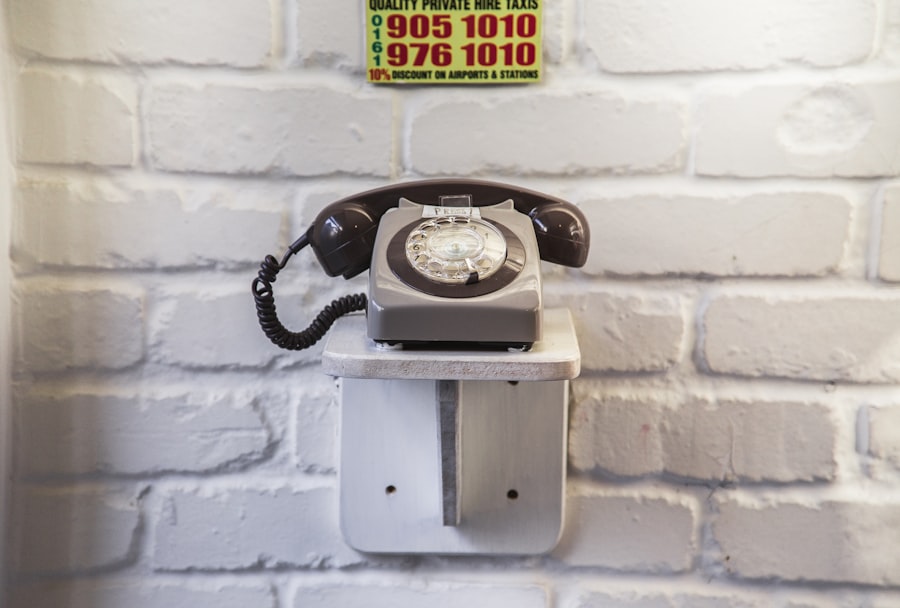Effective communication with the Employment Development Department (EDD) is essential for individuals seeking unemployment benefits, disability claims, and related services. The EDD is a critical resource for those in need of financial assistance during difficult times. Clear communication can significantly impact claim outcomes and inquiry resolutions.
When individuals clearly express their needs and concerns, they streamline the process and build a more productive relationship with EDD representatives. This relationship is important for faster resolutions and better understanding of available services, ultimately helping individuals achieve financial stability. Furthermore, effective communication with the EDD can reduce misunderstandings common in bureaucratic processes.
Government systems can be complex, and miscommunication may lead to benefit delays or denials. By improving communication skills, individuals can ensure their messages are accurately received and their questions are thoroughly answered. This proactive approach empowers individuals and increases their confidence when dealing with the EDD.
In a context where clarity is crucial, the ability to convey information concisely and accurately can be pivotal in navigating the often complicated landscape of employment services.
Key Takeaways
- Effective communication with EDD is crucial for navigating the benefits and services they provide.
- Use clear and concise language when communicating with EDD to avoid misunderstandings.
- Avoid common pitfalls such as using jargon or being unprepared when communicating with EDD.
- Utilize technology such as online portals and email for efficient communication with EDD.
- Empathy and understanding play a key role in building a positive relationship with EDD and can lead to better outcomes.
Tips for Clear and Concise Communication with EDD
To communicate effectively with the EDD, it is essential to adopt a clear and concise approach. One of the most effective strategies is to prepare in advance before making a call or sending an email. This preparation involves gathering all relevant documents, such as identification, claim numbers, and any previous correspondence with the department.
By having this information readily available, individuals can present their cases more clearly, reducing the likelihood of confusion or miscommunication. Additionally, crafting a brief outline of the key points to discuss can help keep conversations focused and on track, ensuring that all necessary topics are addressed without unnecessary digressions. Another important tip is to use straightforward language when communicating with EDD representatives.
Avoiding jargon or overly complex terminology can help ensure that messages are understood clearly. It is also beneficial to ask questions if something is unclear; this not only demonstrates engagement but also helps clarify any ambiguities that may arise during the conversation. Furthermore, maintaining a polite and respectful tone can foster a more cooperative atmosphere, encouraging EDD staff to assist more willingly.
By prioritizing clarity and simplicity in communication, individuals can enhance their interactions with the EDD and improve their chances of achieving favorable outcomes.
Common Pitfalls to Avoid when Communicating with EDD

While effective communication is vital, there are several common pitfalls that individuals should be wary of when interacting with the EDD. One significant mistake is failing to provide complete information. Incomplete or vague details can lead to misunderstandings and may result in delays or denials of claims.
It is essential to be thorough when explaining situations or providing documentation; omitting critical information can create confusion and hinder the resolution process. Individuals should take care to review their submissions for completeness before sending them off, ensuring that all necessary details are included. Another common pitfall is allowing emotions to dictate communication.
Navigating unemployment or disability claims can be an emotionally charged experience, and frustration may lead individuals to express themselves in ways that could be counterproductive. It is crucial to remain calm and composed during interactions with EDD representatives, even when faced with challenges or setbacks. Emotional outbursts or confrontational language can alienate staff members who are there to help.
Instead, approaching conversations with patience and understanding can foster a more collaborative environment, ultimately leading to better outcomes.
Utilizing Technology for Efficient Communication with EDD
| Metrics | Results |
|---|---|
| Number of emails sent to EDD | 500 |
| Number of phone calls made to EDD | 300 |
| Number of online chat sessions with EDD | 200 |
| Response time for email inquiries | 24 hours |
| Response time for phone calls | 30 minutes |
| Response time for online chat | 15 minutes |
In today’s digital age, technology plays a pivotal role in facilitating efficient communication with the EDD. The department offers various online services that allow individuals to manage their claims, submit documents, and access information without the need for lengthy phone calls or in-person visits. Utilizing these online platforms can save time and streamline the communication process.
For instance, individuals can check the status of their claims or update personal information through secure online portals, reducing the need for back-and-forth communication that often occurs via traditional methods. Additionally, leveraging email and other digital communication tools can enhance efficiency when dealing with the EDD. Email allows for detailed explanations and attachments of necessary documents, providing a written record of correspondence that can be referenced later if needed.
Furthermore, many individuals find it easier to articulate their thoughts in writing rather than speaking on the phone, especially when dealing with complex issues. By embracing technology as a means of communication, individuals can navigate their interactions with the EDD more effectively while also ensuring that they have a clear record of their communications.
The Role of Empathy and Understanding in Communication with EDD
Empathy and understanding are essential components of effective communication with the EDD. Recognizing that EDD representatives are often handling numerous cases simultaneously can foster a sense of patience and compassion during interactions. When individuals approach conversations with an understanding of the challenges faced by staff members, they are more likely to create a positive dialogue that encourages collaboration.
This empathetic approach not only enhances communication but also helps build rapport, which can be beneficial in resolving issues more efficiently. Moreover, demonstrating empathy towards one’s own situation can also improve communication outcomes. Acknowledging personal feelings of frustration or anxiety while maintaining a level-headed demeanor allows individuals to express their needs clearly without becoming overwhelmed by emotions.
This self-awareness enables individuals to articulate their concerns effectively while remaining open to feedback from EDD representatives. By fostering an environment of mutual understanding and respect, both parties can work together more effectively towards achieving positive results.
Advocating for Yourself through Effective Communication with EDD

Self-advocacy is a critical skill when communicating with the EDD, as it empowers individuals to take charge of their situations and ensure their needs are met. Effective self-advocacy begins with understanding one’s rights and entitlements within the system. Familiarizing oneself with relevant policies and procedures allows individuals to engage in informed discussions with EDD representatives confidently.
When individuals are well-informed about their rights, they are better equipped to articulate their needs clearly and assertively during conversations. Additionally, advocating for oneself involves being persistent yet respectful in communications with the EDD. If initial inquiries do not yield satisfactory results, individuals should feel empowered to follow up or seek clarification on unresolved issues.
This persistence demonstrates commitment to one’s case while also signaling to EDD staff that the individual is serious about obtaining assistance. By combining knowledge of rights with respectful assertiveness, individuals can effectively advocate for themselves within the often-complex framework of employment services.
Seeking Additional Support for Communication with EDD
While effective communication skills are invaluable when dealing with the EDD, there may be instances where additional support is necessary. Individuals who find themselves struggling to navigate the system or articulate their needs may benefit from seeking assistance from community organizations or advocacy groups specializing in employment services. These organizations often provide resources such as workshops on effective communication strategies or one-on-one support from trained advocates who understand the intricacies of dealing with government agencies.
Furthermore, enlisting the help of family members or friends who have experience with the EDD can also provide valuable insights and support during communications. Having someone else present during phone calls or meetings can help alleviate anxiety and ensure that all relevant points are addressed. This collaborative approach not only enhances communication but also fosters a sense of community among those facing similar challenges.
By recognizing when additional support is needed and actively seeking it out, individuals can further enhance their ability to communicate effectively with the EDD and navigate their circumstances more successfully.



